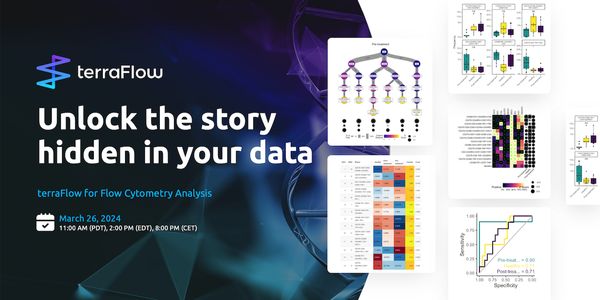JUN 25, 2024 | 9:00 AM
C.E. CREDITS
Cytomegalovirus (CMV) is a ubiquitous infection and congenital CMV (cCMV) infection is the most common non-genetic cause of hearing loss in infants and children. However, most pregnant women...
JUN 19, 2024 | 8:30 AM
Join us for an illuminating webinar as we delve into the realm of open automation with Inpeco, the global leader in Total Laboratory Automation. Discover how their groundbreaking s...
MAY 22, 2024 | 9:00 AM
C.E. CREDITS
Tuberculosis (TB) remains a leading global infectious disease killer, second only to COVID-191. It is an airborne disease caused by Mycobacterium tuberculosis bacteria and is responsible for...
APR 02, 2024 | 8:00 AM
Circulating tumor cells (CTCs) and circulating tumor DNA (ctDNA) have each gained attention as promising liquid biopsy markers, offering molecular insights into cancer progression, overall s...
MAR 26, 2024 | 11:00 AM
Ever wonder what you’re missing in your data? The sheer complexity of today’s flow and mass cytometry datasets demands automated solutions. Machine learning plugins only provide...
MAR 26, 2024 | 10:00 AM
Norovirus is a highly contagious virus and stands as the primary cause of acute gastroenteritis leading to vomiting and diarrhea across all age groups in the United States. Outbreaks of noro...
MAR 20, 2024 | 9:00 AM
C.E. CREDITS
Join us in this enlightening session to deepen your understanding of qualifications and their transformative impact on risk management and regulatory adherence. Gain actionable insights that...
FEB 14, 2024 | 10:00 AM
C.E. CREDITS
Women experience a variety of unique sexual health issues that are often under appreciated by the general public and even by healthcare providers. Compared to other populations, cisgender wo...
FEB 14, 2024 | 7:00 AM
Invasive candidiasis and candidemia are associated with a high rate of patient morbidity and mortality, but earlier initiation of antifungal therapy can significantly improve patient outcome...
JAN 23, 2024 | 8:00 AM
Customizing biosafety cabinets to fit a specific application has become a new trend in biosafety. The ability to get a tailor-made cabinet can create a lot of opportunities for your lab, but...
DEC 07, 2023 | 10:00 AM
Lateral flow assay applications have become increasingly diverse in a post-pandemic world, and the areas of infectious disease and oncology continue to be at the forefront. In both areas, th...
SEP 10, 2024 | 6:00 AM
Wastewater surveillance is an emerging science that can be a critical public health tool for infectious disease surveillance. However, it is currently limited by a lack of standardized metho...
Respiratory tract infections (RTIs) are a significant public health concern due to their widespread transmission and high rates of illness and death globally. Syndromic molecular methods hav...
























